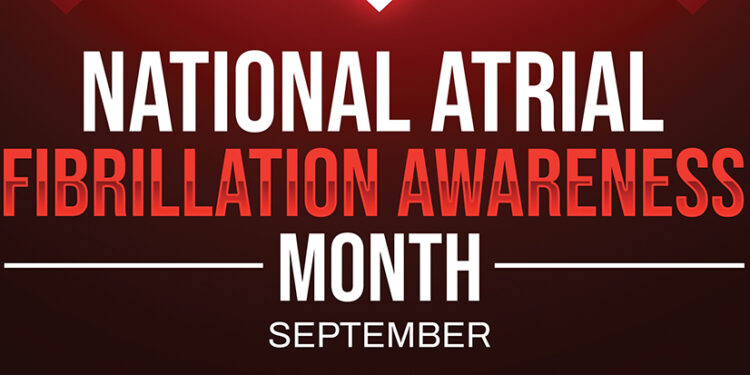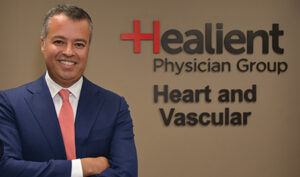Understanding Atrial Fibrillation

Article by Ciara Sophia
NATIONAL ATRIAL FIBRILLATION AWARENESS MONTH

 Each September, the medical community sheds light on a condition that affects millions around the world: Atrial Fibrillation, also known as AFib. As AFib Awareness Month rolls around, it’s the perfect time to learn about this heart rhythm disorder, how it affects the body, and what you can do to protect yourself from it or support loved ones dealing with it.
Each September, the medical community sheds light on a condition that affects millions around the world: Atrial Fibrillation, also known as AFib. As AFib Awareness Month rolls around, it’s the perfect time to learn about this heart rhythm disorder, how it affects the body, and what you can do to protect yourself from it or support loved ones dealing with it.
So what is AFib? Atrial Fibrillation is the most common type of irregular heartbeat, or cardiac arrhythmia. In a healthy heart, electrical signals travel in a coordinated way and prompt the heart to beat in a steady rhythm. With AFib, these electrical signals malfunction and cause the upper chambers of the heart to beat ineffectively. Different patients have different symptoms, such as heart racing, fluttering, or skipping beats, and many notice fatigue, shortness of breath, chest discomfort, and/or dizziness. These irregular feelings and rhythms can be occasional, brief episodes, but for some people AFib is a persistent, chronic condition, lasting even for years.
While AFib isn’t seen to be life-threatening in itself, its consequences can be serious and become riskier over time. The disorder can lead to blood pooling in the atria, increasing the risk of blood clots. If these blood clots travel to the rest of the body, they can cause strokes — the number one cause of permanent disability. Beyond strokes, AFib can also overwork the heart and over time cause heart failure. With all of these possible repercussions, this condition places a significant burden on not just the suffering individuals, but also healthcare workers worldwide.
Awareness starts with understanding risk factors. Expert Cardiologist Dr. Couchonnal is currently the Director of Cardiac Electrophysiology at St. Joseph Medical Center and the Helient Heart Rhythm Center, and his clinical focus includes Atrial Fibrillation. Dr. Couchonnal shared various types of these different risk factors with us to increase our knowledge on the subject,“The most common risk factors for atrial fibrillation include advanced age, high blood pressure, diabetes, obesity, obstructive sleep apnea, and excessive alcohol and tobacco use.” Each of these risk factors are assessed in patients newly diagnosed with atrial fibrillation.
The good news is that AFib is manageable! Several of the risk factors listed above can be improved simply with lifestyle modification. This being said, when assessing a new patient with atrial fibrillation, Dr. Couchonnal tries to take a holistic approach. “Not only do we want to focus on managing a patient’s atrial fibrillation, we also want to manage their risk factors that resulted in them developing atrial fibrillation in the first place,” says Dr. Couchonnal. Often, working on diet and exercise can have a profound effect on improving a patient’s overall health, and Dr. Couchonnal often recommends several books to his patients to help them learn how to make better dietary choices and promote exercise. “I often discuss that the best medicine for managing these risk factors does not involve any medications,” says Dr. Couchonnal. Going beyond a healthy lifestyle, there are specific procedures that patients with AFib can have done: “To manage a patient’s symptoms of Atrial Fibrillation, we often recommend an invasive procedure called an ‘Atrial Fibrillation Ablation’. However, despite this procedure, patients can have recurrent atrial fibrillation several years down the road. That is why managing patients’ risk factors for atrial fibrillation is so crucial.”
By raising awareness this September, we can help more people recognize the signs of AFib early on, seek medical care, and reduce the risk of some of the devastating consequences of AFib such as strokes. Heart health isn’t something to only think about when there’s already a problem, because proactive prevention and education saves lives. So this month take a moment to learn your risk factors and share this knowledge with family and friends. All in all, awareness is truly the first step to a healthier heart.
For more information on Atrial Fibrillation contact Dr. Luis Couchonnal at 913-956-2250 or visit healient.com/team/luis-couchonnal-md-facc/






